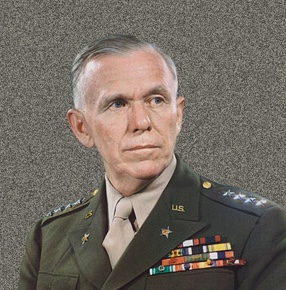AFP: On November 14, 1938 an important meeting was called in the Cabinet Room of the White House. Twenty years earlier, almost to the very day, the Great War had come to a close. Now the world was on the verge of war again. And the United States was dangerously unprepared.
President Franklin D. Roosevelt had assembled several important members of his cabinet along with officials from the War Department to discuss a proposition to dramatically increase production of military aircraft for a coming conflict. It was Roosevelt’s hope that sending warplanes to Great Britain could help the war effort without committing the United States to another global war.
With a standing peacetime army of 174,000 officers and soldiers, the military power of the United States ranked 18th in the world. Meanwhile, Germany was flexing its imposing muscles in Europe. On the other side of the world, the Japanese Empire was slowly extending the tentacles of its growing navy into the vast expanses of the Pacific.
Few men understood the overwhelming nature of the threats. When President Roosevelt was wheeled into the Cabinet Room to begin the meeting, he explained to the assembled military officers and War Department officials the need for the United States to increase production of warplanes at a budget of $500 million dollars.
One by one, the generals and statesmen around the room gave their approval of the President’s plan. After being elected to office three times, President Roosevelt was used to things going his way. Everyone in the room expressed their assent to the plan.

Finally, President Roosevelt turned to Brigadier General George Catlett Marshall. The President addressed Marshall by his first name, “Don’t you think so, George?” more

That was very interesting. Thanks for posting!
Marshall understood the maxim “isolate the battlefield” even though the “battlefield” encompassed nearly the entire World.
He ordered the “Reduction of Rabaul” though MacArthur wanted to invade, thereby isolating some 80,000 japs until the war was over.
He was insulted and calumniated by Sen. Joe McCarthy as “soft on communism” because he could not bring the forces of Chiang Kai-shek to either defeat the communists of Mao Tse Dung, or work with them.
(which was why he retired)
A true military visionary unappreciated in his own time.
mortem tyrannis
izlamo delenda est …
They don’t make ’em like Gen. George Marshall anymore. He was a great American and a Great General.
Thanks for sharing that MJA. Really great stuff.
Note- contrast that with the current chief of staff and secretary of defense.
That was good! I don’t know much about him, I’ll have to look for more.
Obviously not a tranny…
WE OWE A HUGE DEBT OF GRATITUDE TO THIS GREAT MAN WHO REMAINED HUMBLE AND THANKFUL TO ALL SOLDIERS
IT’S CALLED LEADERSHIP
Back in those days, politicans were merely corrupt in the sense they skimmed money and got kickbacks. They’re corruption usually cost the rest of America money, and maybe a lot of it. Modernly, politicans aren’t merely corrupt, but they’re treasonous, selling out our nation for money, and costing Americans our FREEDOM.
Compare that asshole Miley to Marshall. What fucking depressingd comparison.
Marshall didn’t like Roosevelt’s palsy attempt to undercut him, either, and he let him know it.
PS MacArthur wanted to isolate Rabaul. He landed troops at Cape Gloucester and Arawe to further that process. Get it right.
MacArthur took credit for Marshall’s decision – get it right.
(see “Cartwheel: The Reduction of Rabaul” John Miller, Jr., Center for Military History, United States Army, 1959)
mortem tyrannis
izlamo delenda est …
Today’s General Staff isn’t fit to scrape the gum off Marshall’s show.
*shoe
The avoidance of certain strongly defended islands in the Pacific theater of WWII may have been a practice developed by the German military in WWI. They used it to bypass French strongholds at Verdun, with the intent of mopping them up later. The Germans called it “storm tactics”.
I say “may have” because I am not sure whether the WWII allies picked it up from the Verdun battle, but it’s a good guess.
In any case, Marshall and MacArthur made it work brilliantly against the Japanese island bases during WII. Those island bases were left dying on the vine as US forces just went around them.
I’m going to read more about him. Thank you for posting.